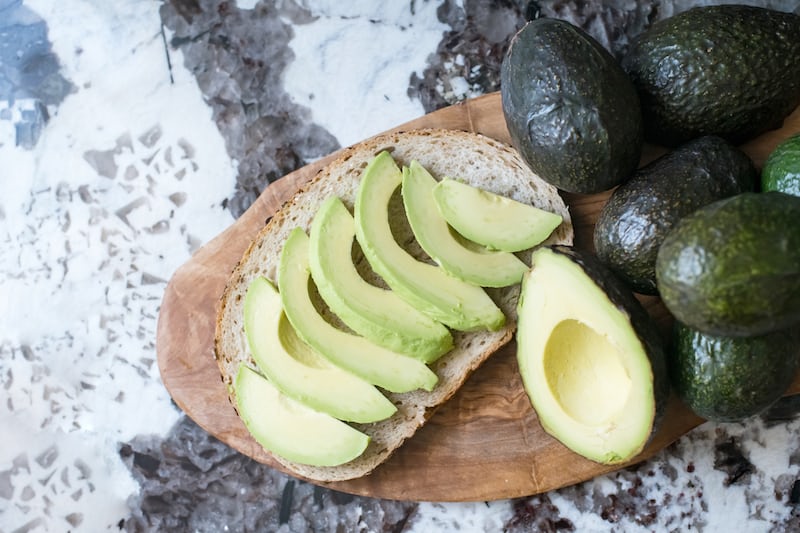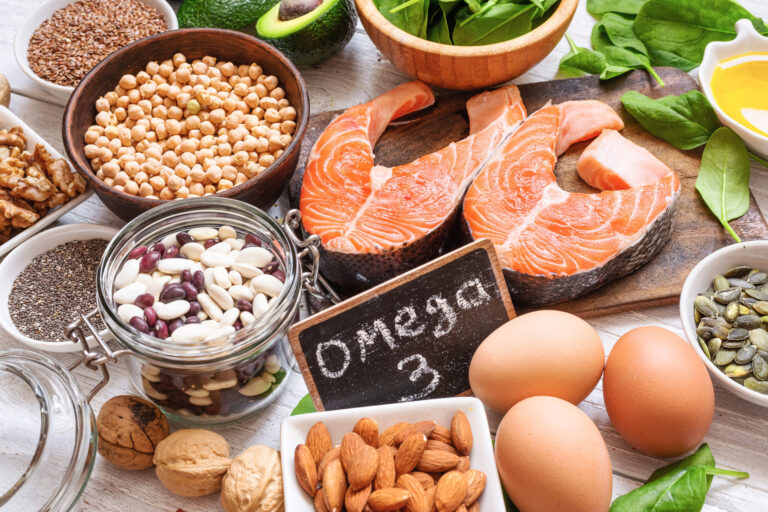Featured Food: Avocado
NUTRITIONAL VALUE
For 100g
Calories 160
…………………………..
Lipids 15 g
Carbohydrates 9 g
Fibres 7 g
Sugars 0,7 g
Proteins 2 g
Although it’s used on our plates as a vegetable, the avocado is actually a fruit. But we love its creamy, soft texture. As a fashionable food, avocados are here to stay. From the famous avocado toast to the classic guacamole, avocados bring sunshine to our plates.
WHAT ABOUT NUTRITIONAL VALUE OF AVOCADO?
Avocados offer an abundance of potassium (more than a banana!), B vitamins and vitamin C. They’re incredibly dense in minerals, with high amounts of magnesium, phosphorus, copper and manganese. One cup of avocado also provides 10 grams of fiber, a nutrient many of us sorely lack. They are a good source of fat-soluble vitamins (vitamin E and vitamin K).
Avocados contain both omega-3s and omega-6s, essential polyunsaturated fatty acids, meaning that they are necessary for the body to function and must be supplied by the diet. However, their high fat content also means high calorie content. Although they are incredibly nutritious, it’s best to eat them in moderation.
WHAT ARE ITS HEALTH BENEFITS?
Because of their high fiber content, avocados are excellent for digestive health and are a good source of prebiotics, foods that nourish good bacteria in the gut.
Avocados may reduce the risk of heart disease. A 2015 study published in the Journal of the American Heart Association found that eating one avocado a day as part of a moderate fat and cholesterol diet reduced LDL levels. This effect is potentially due to the fiber and mono- and polyunsaturated fat content of avocados, especially if they replace saturated fat from animal products. Their high potassium content would also have beneficial effects on your blood pressure, as revealed by a study published in 2022 in the British Journal of Nutrition revealing that Mexican women consuming at least five servings of avocado per week had a 17% decrease in their hypertension rate.
A 2015 study published in Cancer Research found that avocado B, a compound derived from avocados, can help kill leukemia cells. In addition, their carotenoid and vitamin E content was examined for their antioxidant capabilities, which are thought to help fight free radicals that can lead to the development of cancer cells.
A 2016 study published in Advances in Neurobiology found that the diverse range of bioactive nutrients found in avocados may play a key role in preventing and healing neurodegenerative diseases, such as Alzheimer’s and Parkinson’s.
They are also rich in the carotenoids lutein and zeaxanthin, which may help protect and maintain healthy cells in the eyes.
TIPS AND TRICKS
Can’t find ripe avocado at the grocery store?
It seems that the most effective trick to make it softer is to poke a few holes in the avocado with a fork and microwave it for 30 seconds. If it’s not ripe enough yet, repeat the process until it is.
To learn more about nutrition or to obtain an intervention plan adapted to your needs, make an appointment with our nutrition team at [email protected]
*The information contained in this form does not replace the advice of a health professional and is provided for information purposes only.
Recipe Card Cowboy caviar
The ultimate summer salad, colorful, tasty and especially healthy!
- 1 canof black beans, well rinsed
- 2 cups of frozen corn
- 1 ¼ cup diced tomatoes (seeded)
- ½ cup finely chopped red onion
- ½ cup diced yellow bell pepper
- 1 jalepeño, finely chopped
- ½ cup finely chopped cilantro*
- 1 avocado, diced
For the dressing:
- ½ cup lime juice
- ¼ cup olive oil
- Zeste of one lime
- ½ teasponn garlic powder
- 1 pinch of cayenne pepper
- Salt and pepper to taste
*you can replace the coriander with parsley
Preparation
- Toast the corn in a pan over medium heat with a little oil
- Mix all the vegetables, beans and coriander in a bowl
- Put all the ingredients for the dressing in a mixing bowl and whisk together
- Add the dressing to the salad and serve




